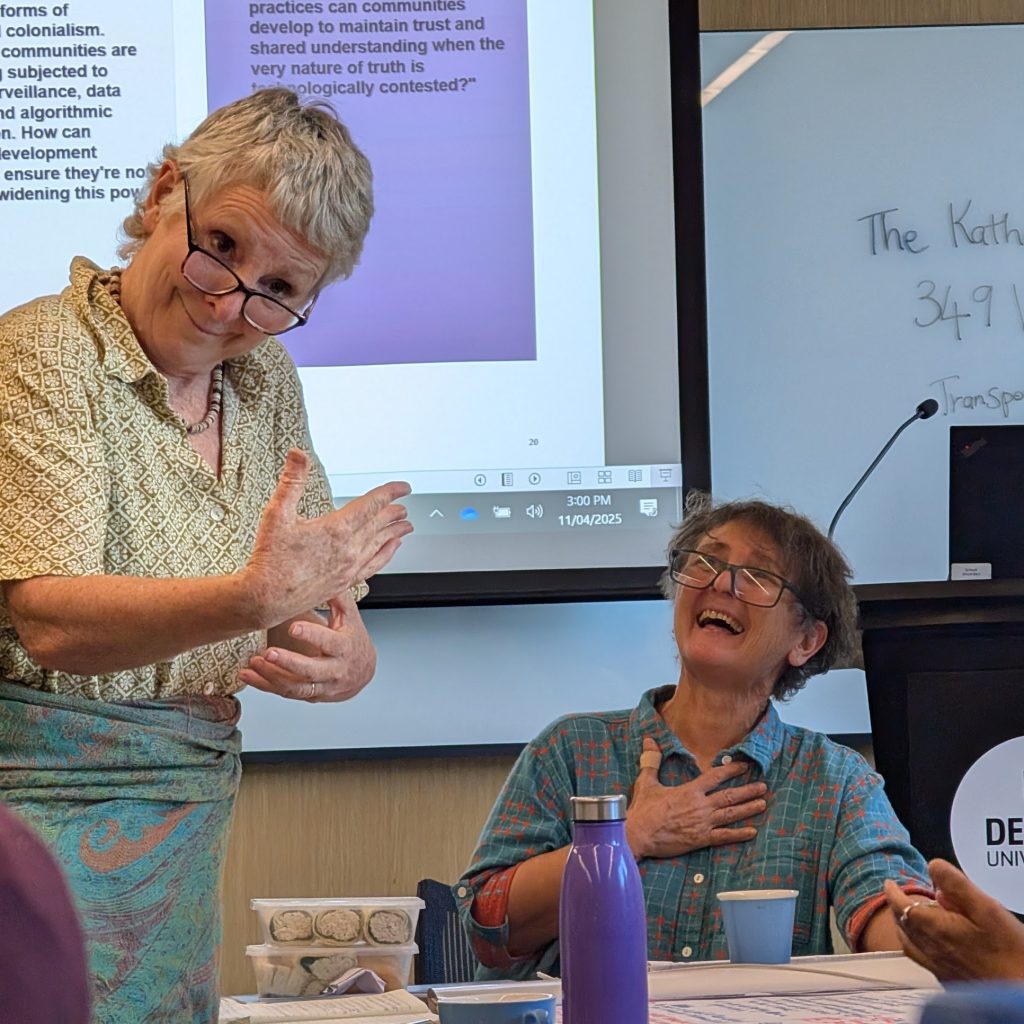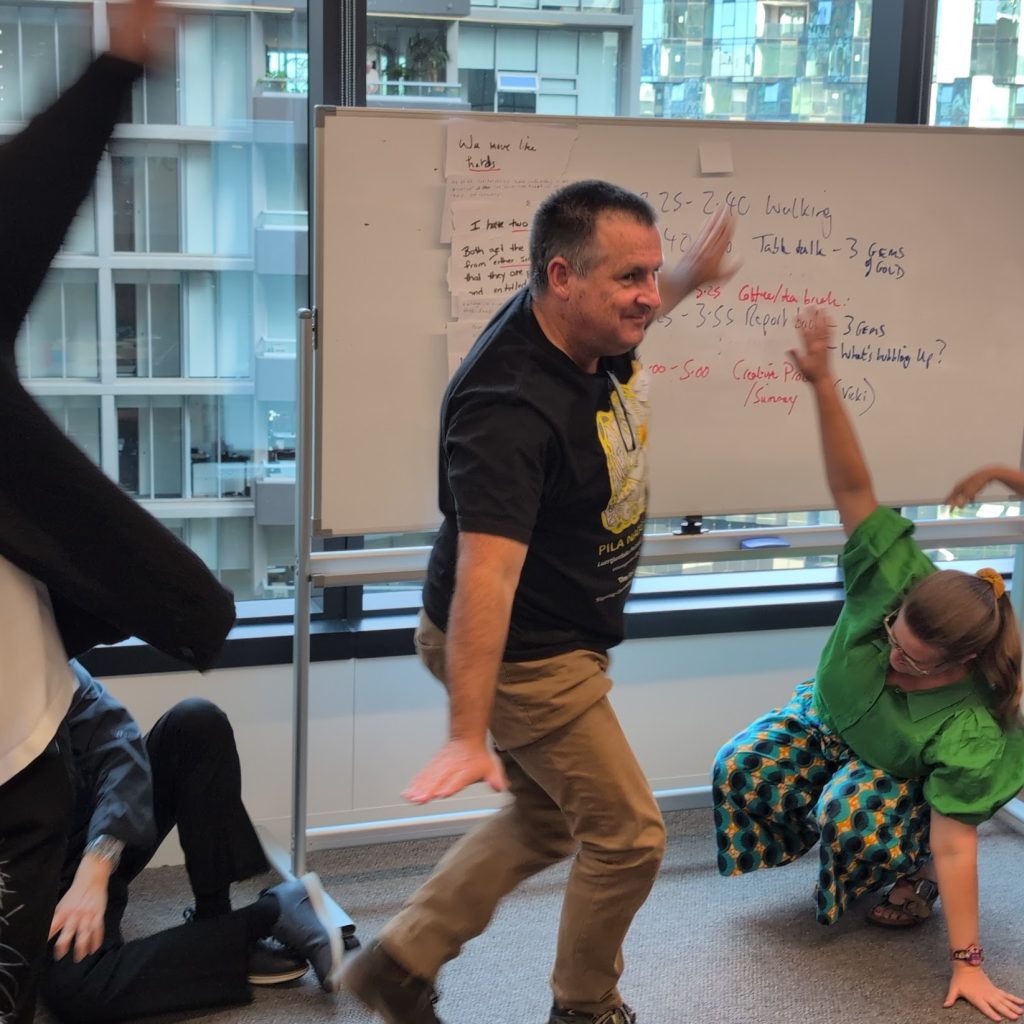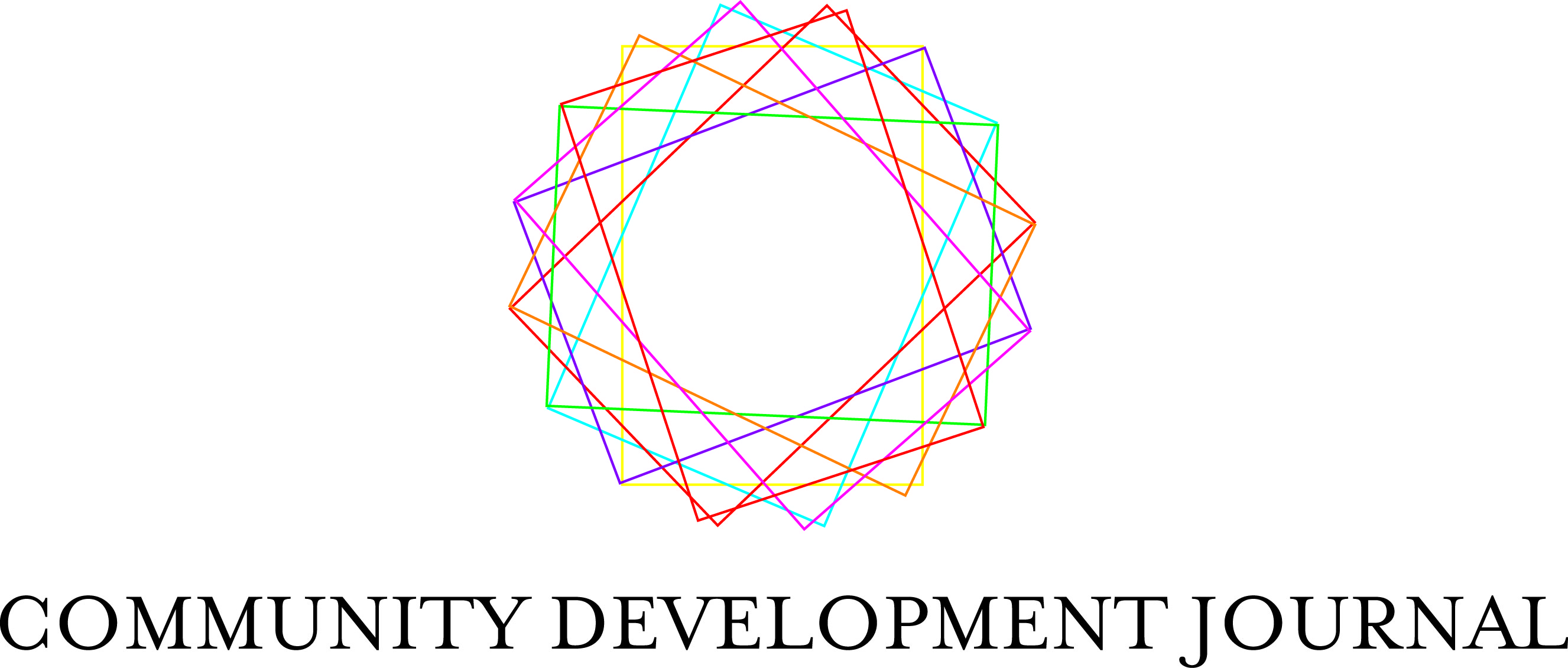
Community Development in a Turbulent World: Four Challenges

On April 10th and 11th, 2025, Deakin University and the Community Development Journal supported an event bringing together community development practitioners to discuss emerging and urgent issues in CD practice. Event report by Sue Kenny, photos by Michael Chew.
The event, titled ‘Community Development in a Turbulent World: Four Challenges' was one of a series of events marking the 60th anniversary of the Community Development Journal (CDJ). In early 2024 the editorial board had issued a call for proposals from the International Advisory Board (IAB) members and their networks to host local and regional events. The 60th Anniversary comes at a period of profound uncertainty and social turbulence, and the board felt that it was timely that those committed to community development reflect on how its theories, practices and research are being affected by the enormous social changes and challenges, and share ways of responding to these.
In Australia there are several networks of those committed to community development. Following discussions with Sue Kenny, a member of the CDJ IAB, network representatives decided to work on a proposal to the CDJ Board for support funding an event in Melbourne. With the support of the Community Development Journal and Deakin University, Sue Kenny, Peter Westoby, Jaya Manchikanti, and Vicki Ware organised a two-day roundtable. The roundtable aimed to provide a forum where participants could exchange their ideas, research and practice experiences, and discuss ways of co-creating the future.
The program focused on four provocations: Coloniality and 1st Nations; Civil society and the far right; Dialoguing through difference; and New technology - Focusing on AI. Each topic was introduced by a provocateur who acknowledged community development to be a messy and often a contradictory endeavour, requiring nuanced and critical understandings, and facilitated the discussion that followed.
The event began with a group acknowledgement of Aboriginal and Torres Strait Island people as the traditional custodians of the land, and an expression of respect to Elders past, present and emerging. Facilitators Jaya Manchikanti and Peter Westoby then outlined the background and purpose of the two-day roundtable. Sue Kenny provided a brief overview of the journal’s history, and the urgent contemporary challenges to community development.
The topics were split across the two days. Dave Palmer introduced the first of the four provocations, on coloniality and First Nations, asking: what can we learn from Australian First Nations on ‘becoming’? This conversation asked, among other questions, how do we navigate the tensions of neoliberal/ violent/ colonising structures and institutions with the Indigenous/ ‘old’ knowledge systems? This was followed by a talk by Sue Kenny on civil society and the far right, which explored the case study of how Russia slipped from a burgeoning civil society in the early 1990s, to the hybrid authoritarian/totalitarian state it is today.
Day two was facilitated by Dave Palmer and Jaya Manchikanti. The next provocation was ‘dialoguing through difference’, a discussion of the conditions that enable the facilitation of dialogue, the barriers thereto, and the role of agonistic dialogue, led by Peter Westoby. Finally, Lynda Shevellar led a conversation about AI in community development, examining AI through normative, critical, and impact lenses.

A full summary of the proceedings, including further details of the provocations, can be downloaded here. In the second half of 2025 the CDJ Board will hold an international online event that will bring participants from the regional events together to discuss shared and divergent experiences.
